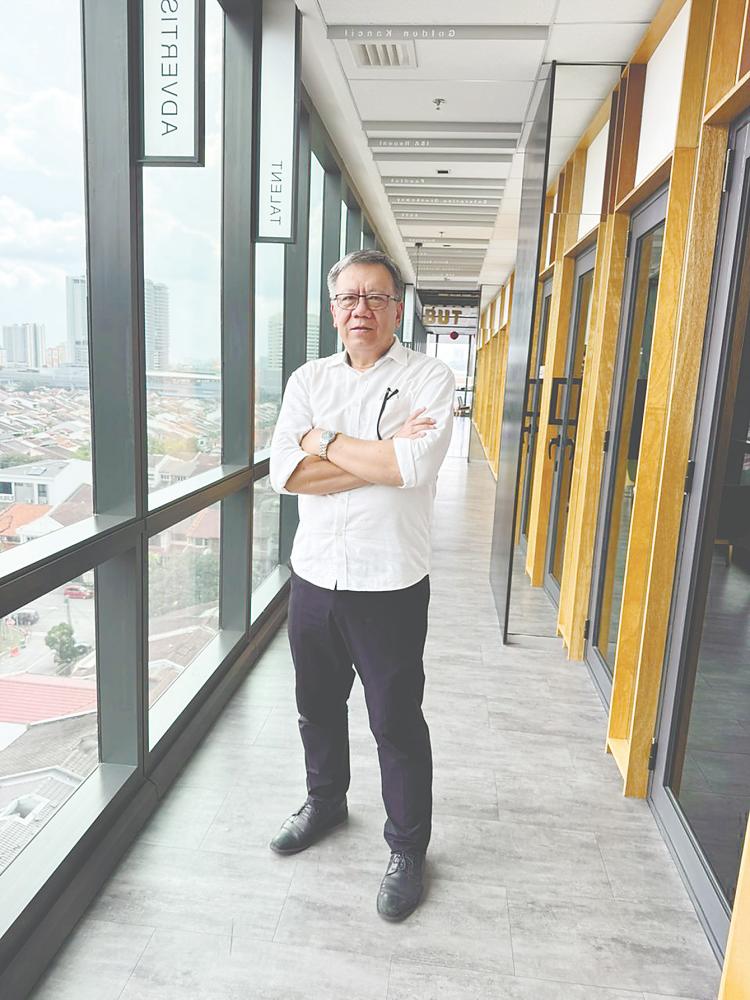PETALING JAYA: A landmark moment for Spirit of Endeavour Sdn Bhd, a Malaysian consulting firm, came when it was selected by the Fiji government as the Integrated Project Manager for the “businessNOW Fiji” project.
Tasked with spearheading the development of Fiji’s national digital platform for government services, this project aimed to streamline processes for businesses and investors.
Under this initiative, two critical applications would be implemented: First, to digitise the process of starting a business and the other to automate building permit approvals through a digitisation process.
As one of Fiji’s largest ICT projects, businessNOW Fiji is a cornerstone of the country’s digital government transformation agenda, launched in 2018. Known as digitalFIJI, when fully completed, Fiji would have integrated 16 agencies and ministries with 25 e-services online.
We’re happy to announce the launch of starting a business system which integrates eight agencies enabling companies to be registered, obtain their tax numbers, employee provident registration, occupational health, fire safety, training provisioning and food licensing (if applicable) all on one platform, one sign-on and with active monitoring. If a foreign company intends to invest in Fiji, the Reserve Bank’s certification is also on the same system, said Spirit of Endeavour managing director K V Soon.
He said Endeavour conducted the process review and developed the high level integrated functional requirement, advised in the selection of the software (technical) vendor, set-up and manage the Integrated Project Management Office.
Soon shared with Sunbiz insights into the challenges, strategies, and triumphs of leading such a groundbreaking international venture.
“Being chosen for this project was both a proud moment and a significant responsibility,” said Soon.
“The Fiji govern-ment’s vision to en-hance ease of doing business resonated deeply with our exper-tise in digitisation and transformation. We knew this project would push boundaries, not just technologically but also culturally and logistically.”
With the Fiji government’s goal to create a more business-friendly environment, businessNOW Fiji marked a bold step towards simpli-fying bureaucracy and catalysing economic development.
“Our role as the Integrated Project Manager required us to ensure the delivery of the systems are on time and of high quality. We are also responsible for the usefulness. We need to ensure that the system aligns with national strategies – in other words, it needs to, over time, achieve the intended impact. To achieve this, we had to first align various stakeholders, integrate diverse systems and processes, and deliver a platform that is both robust and user-centric,” said Soon.
What were the primary logistical and infrastructural challenges in starting the project?
“The geography of Fiji was obviously a hurdle with hundreds of islands spread across a large space of oceans. I must acknowledge that the Fiji government was forward-thinking and is still in the process of improving connectivity – both in terms of reach and quality. An effective communication process was set up to ensure infrastructural and connectivity needs, as well as requirements are met for this project. The real challenge was connecting the multiple disparate agencies and ministries with varying degrees of software complexities. Of course, they are agencies that did not have systems who did their processes manually. The coordination and integration were immense. Moreover, for the existing multiple systems, we selected a technical vendor that could offer flexible solutions, including a generic front-end solution for those organisations that relied on manual processes.
How did cultural and regional nuances influence the project delivery?
Understanding Fijian culture was pivotal. For instance, their emphasis on relationship building and community engagement meant we could not simply impose solutions. We had to co-create them with local stakeholders. Respecting traditions like the pace of decision-making was a learning curve. But once we aligned our processes with their way of working, the collaboration became smoother. Beyond acknowledging cultural differences, our team put together a comprehensive change management programme that seek to understand the challengers and to develop and execute specific activities to break through barriers for adoption.
How critical was stakeholder engagement in addressing these challenges?
Absolutely critical. This project integrates multiple agencies, over 15 of them onto a single platform. This alone is absolutely challenging, especially when all of them have their own processes. Some have systems, some don’t and their systems vary in sophistication and depth. One important aspect of running the project successfully is to ensure that the governance of the project is clear, and the right people are helming the respective committees. We established a Joint Project Management Committee (JPMC) comprising Fiji government officials from key agencies reporting to a steering committee comprising members from the private sector, and our Endeavour team. Scheduled meeting and regular check-ins, open dialogue, and a shared vision were instrumental in resolving conflicts and aligning priorities.
What advice would you give Malaysian companies planning to venture overseas?
Firstly, adaptability is key. Each market has its own unique dynamics, and flexibility in approach is essential. Secondly, invest in meaningful relationships. In Fiji, success came from earning trust, understanding cultural nuances, and demonstrating long-term commitment. Finally, focus on building local capacity. By empowering local talent, we not only ensured the project’s sustainability but also built goodwill that will last long after the project ends.
Reflecting on the journey, Soon concludes, “Project businessNOW Fiji is a testament to what Malaysian companies can achieve on the global stage. It wasn’t just about technology; it was about partnership, perseverance, and creating something that truly made a difference. I believe our experience serves as a blueprint for other Malaysian firms aspiring to make their mark overseas, especially when working with governments.”









